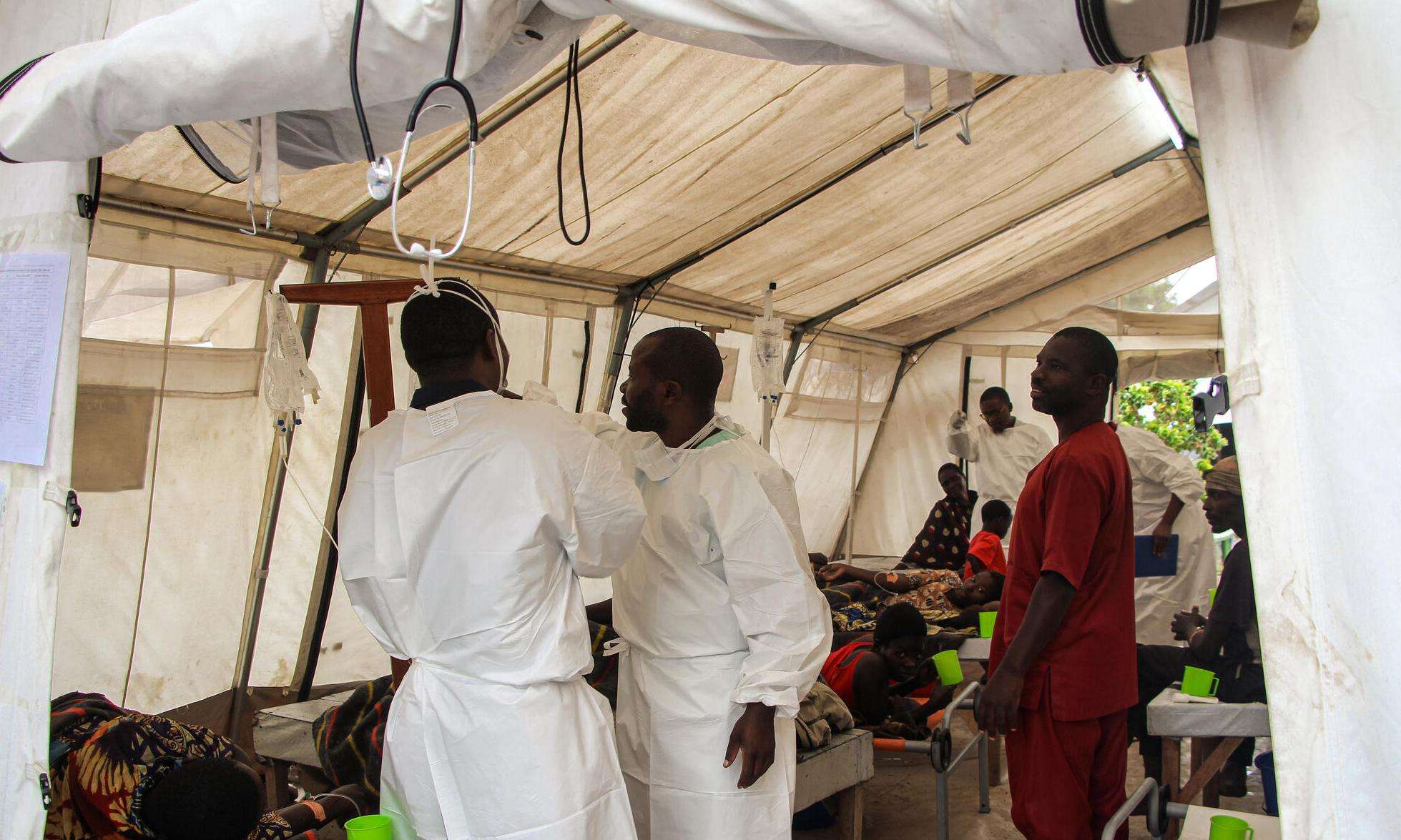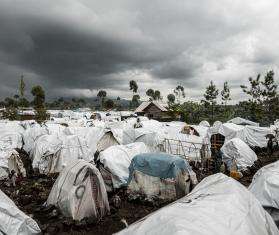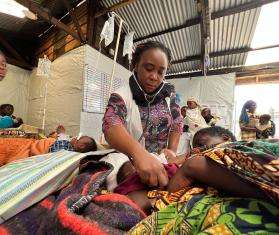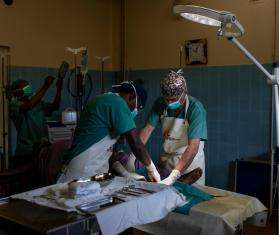For months, Doctors Without Borders/Médecins Sans Frontières (MSF) has been the only medical care provider present in Rutshuru territory, Democratic Republic of Congo (DRC). There, our teams are urgently mobilizing in response to a cholera outbreak, particularly in the Binza and Rutshuru health zones. More than 1,500 patients have been treated since the beginning of June 2023.
In the first line of the medical response, MSF teams had to deploy substantial medical and logistical resources in just two days.
“At first, health facilities were overwhelmed by the massive influx of patients. With limited capacity, some days we had to treat more than 100 patients at the same time with just 20 beds,” said Romain Madjissembaye, MSF project coordinator.
To prevent further contamination and reduce the spread of the disease, the teams set up four cholera treatment centers, as well as oral rehydration and water chlorination points for people who live further away. In the span of three days, nearly 400 people were treated by MSF teams who are supporting the heath authorities in the Rutshuru and Binza health zones.
A mother's arduous journey to save her son from cholera
"My son was suffering from severe diarrhea and fainted,” said Tushime of her two-year-old son, Djafette. "The whole way here, which took three hours [by motorcycle], I was very worried and afraid because he was no longer moving. I've never seen him so ill.”
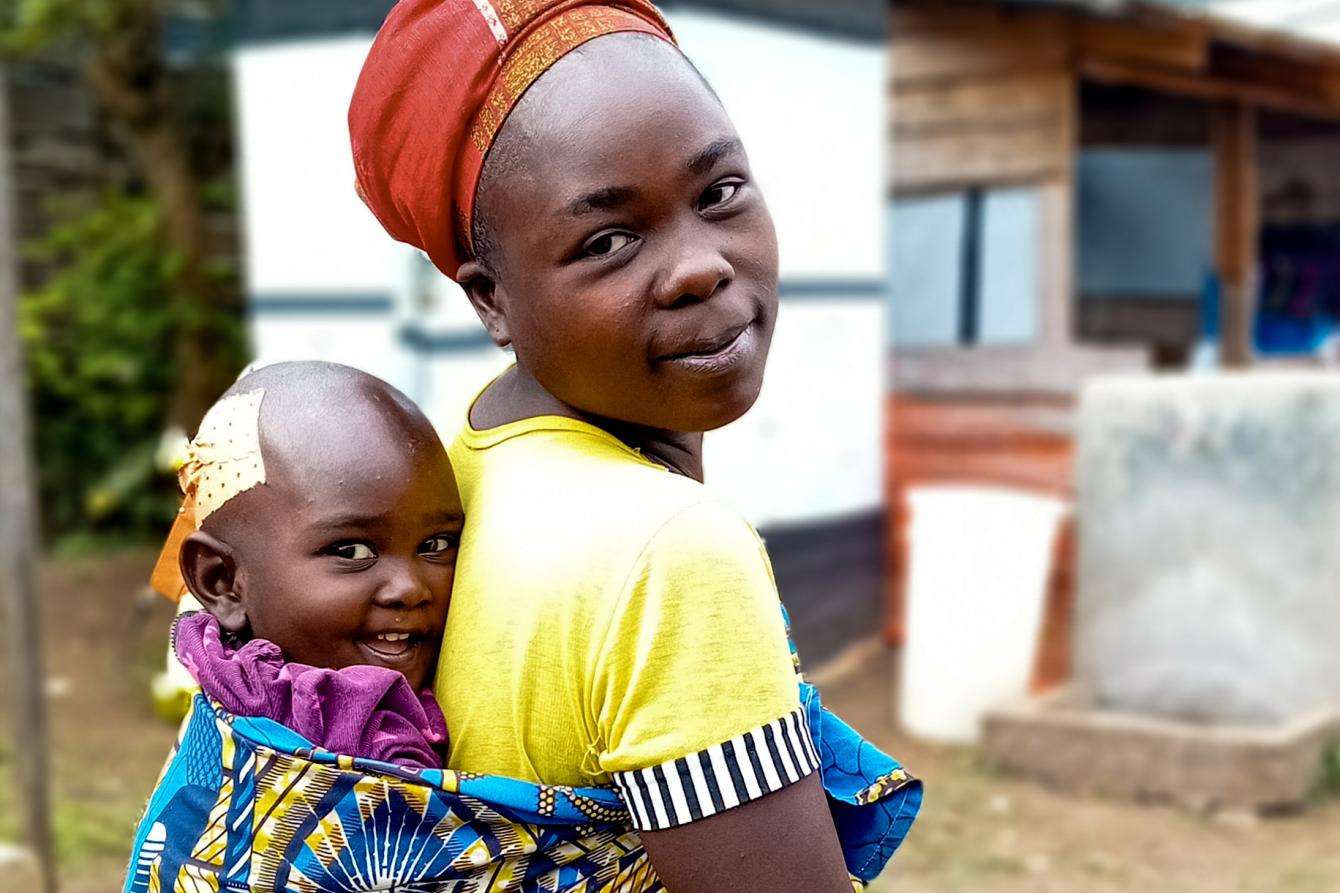
Djafette was in shock when he arrived for treatment. The MSF team used intravenous fluid to rehydrate him. Tushime, who had also fallen ill, received treatment at the same time as her son. "Not everyone has this opportunity,” she said. “On the way here, I saw people who died."
After six days at the treatment center, Tushime returned home with her son and will be reunited with her husband and her two other children.
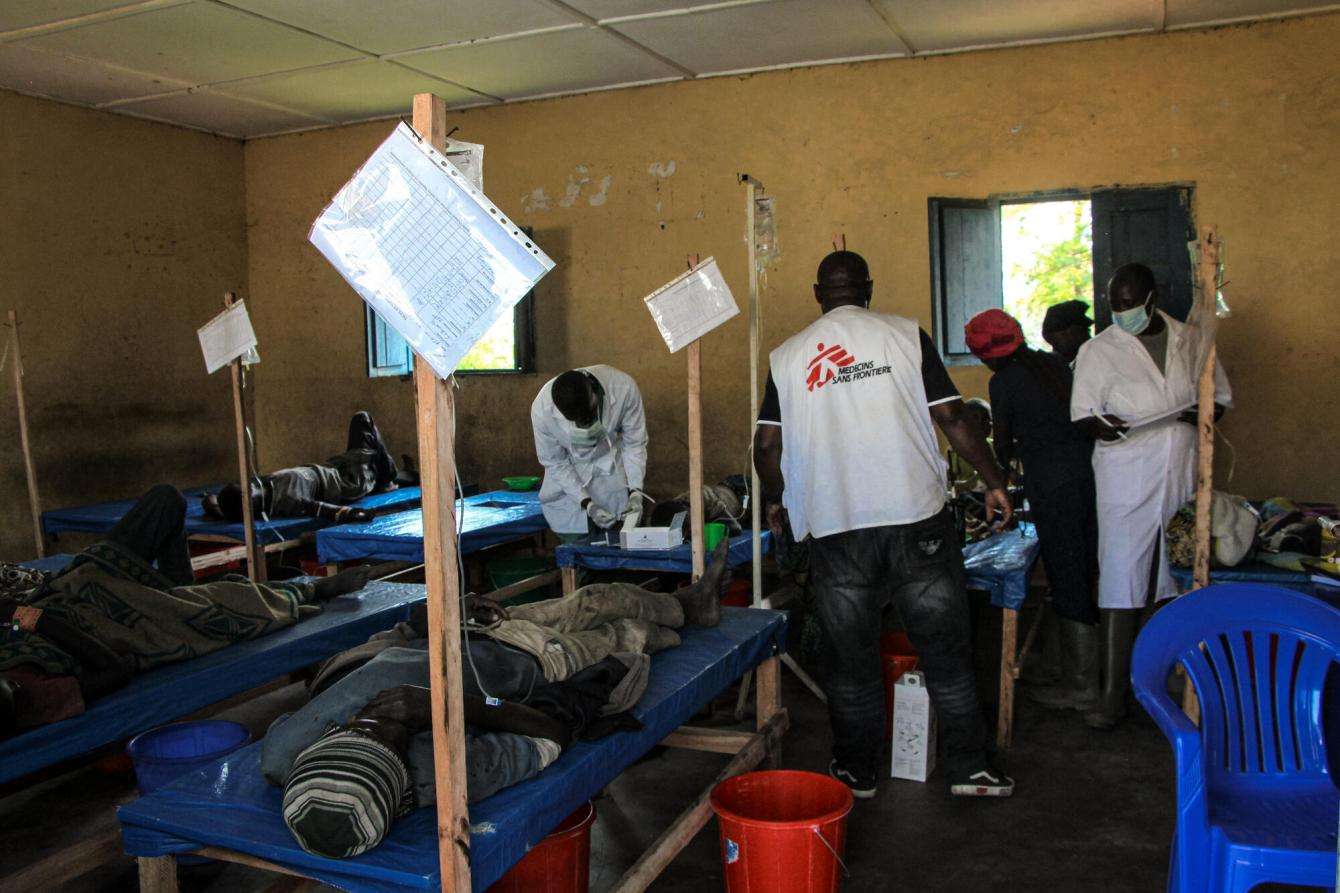
People face difficult obstacles to reach cholera treatment center
Most patients in the Rutshuru area must travel dozens of miles through the bush to reach medical facilities. Some arrive unconscious, or in shock, and the medical teams have only a few hours—or even minutes—to save them.
Dieu-est-Bon, a 16-year-old boy, started to feel tired two days after carrying a sick person on his bike to the nearest health center in Kiseguru, about 10 miles away.
"I thought it was malaria, so I didn't worry," he said. "Then I started having severe diarrhea and vomiting, which made me realize that it might be the same thing that the person I had accompanied was suffering from. But by then, I became too weak to move.”
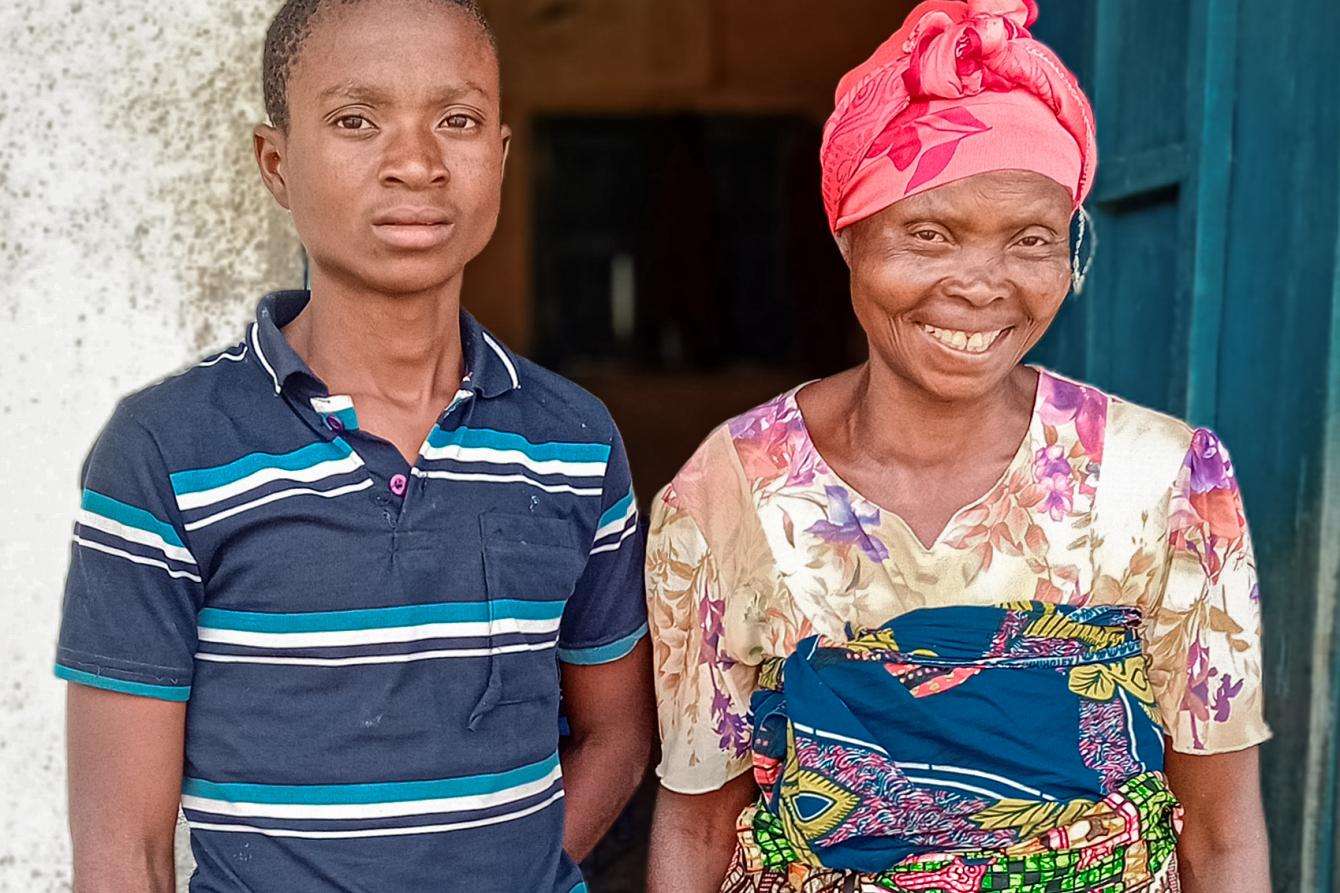
Two people carried Dieu-est-Bon by foot for four hours to the treatment center. After two days of treatment, Dieu-est-bon felt better and his mother came to pick him up.
Dieu-est-Bon had to stop his studies because schools closed nearly a year ago due to the volatile situation in the region. So, in the meantime, he helps his parents farm the fields. He dreams of becoming a mechanic in the future.
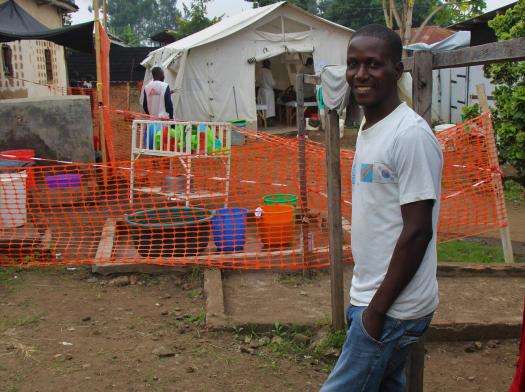
Jean fainted from his cholera symptoms and received treatment after someone brought him to the MSF treatment center in Rutshuru. DR Congo 2023 © Laora Vigourt/MSF
Another patient, a corn farmer named Jean, can't remember how he arrived at the health center.
"When I woke up lying in the treatment center, I didn't know where I was or what had happened to me. I remember that I was working in the fields and that I was suffering from stomach pains, with diarrhea and vomiting. Then I fainted," he said.
"I was told that someone I didn't know had brought me here on a motorcycle to get treatment."
Jean has been to a hospital before but has never been through something like this. "I was really scared. I nearly died, but fortunately today I'm healed, and I'll be able to see my wife and my two children again.” Jean stayed at MSF’s center for five days of treatment.
Mobilizing the community for cholera prevention
Through community-based prevention measures and increased medical support, MSF has brought the situation under control. New patients continue to arrive, but the admission rate is declining. MSF teams remain mobilized every day to treat patients.
Denis Mudake is an MSF nurse supervisor at the Kiseguru health center, where MSF has set up a special treatment center to deal with an outbreak of cholera-like acute diarrhea. He was part of the medical team that treated the first cases at the beginning of June. Since then, more than 500 patients have been treated in the center.
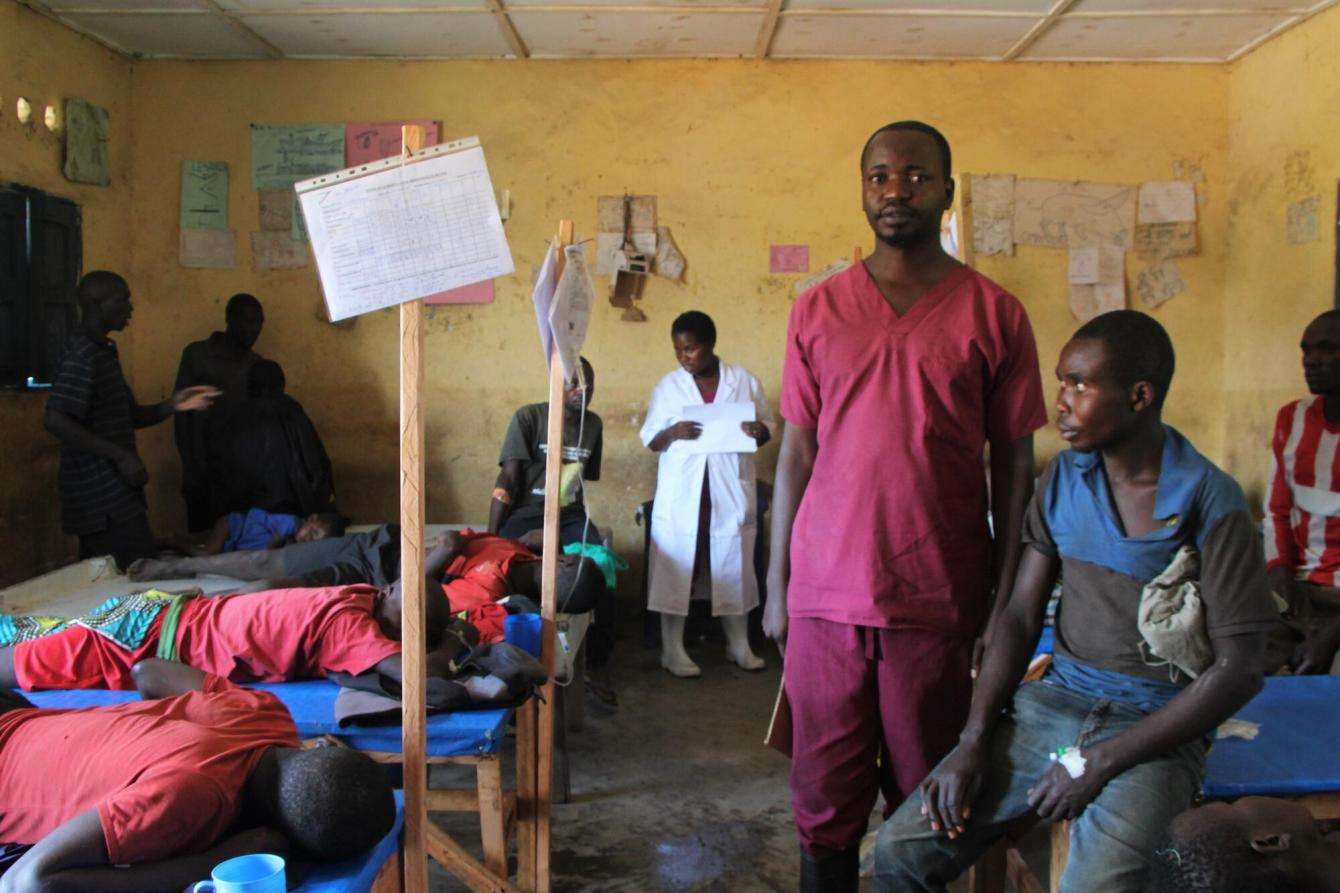
"The first few days were not easy,” he said. "We were short of space to cope with the influx of patients. We were overwhelmed, with three or four patients per bed. We subsequently sent more materials and set up a specific processing center. It's a huge logistical task to set this up in just a few days.”
"We have involved the community in raising awareness and have set up water chlorination and oral rehydration points to get closer to the patients, who come from far away and are often in a critical state of health.”
Denis has been working for MSF for almost nine years in different projects. Despite the fatigue, he remains determined and motivated.
MSF supports 24 medical structures in the Rutshuru, Rwanguba, Binza, Bambo, and Kibirizi health zones.
